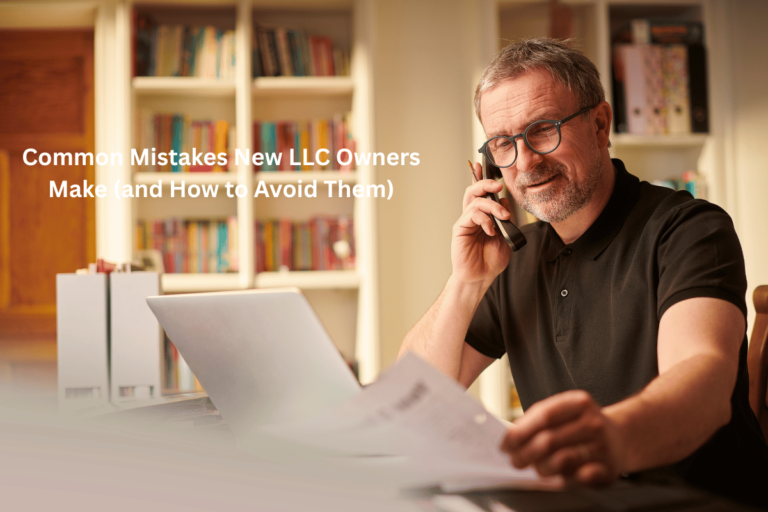How to start a business in Spain
Did you know Spain ranks 28th in the 2018 World Bank survey for ease of doing business? It’s pretty friendly for starting companies. This guide will help you learn the steps to start a business in Spain. It’s a great place for both EU and non-EU citizens to dive into business.
Starting a business far from home might seem scary at first. But, understanding the local rules can make things clearer. We’ll explain everything you need to know about business life in Spain. This includes types of businesses, rules, and even the taxes and insurance you should think about.
Key Takeaways
- Spain ranks 28th out of 190 countries in the 2018 World Bank Ease of Doing Business Survey, making it relatively easy to establish a business in the country.
- Navigating the legal requirements, such as obtaining a foreigner’s tax identification number (NIE) and registering the company name, is crucial for starting a business in Spain.
- Understanding the different business structures available, from self-employed workers (autónomos) to limited companies (sociedades limitadas), is essential for choosing the right legal framework.
- Obtaining the necessary licenses and permits based on the type of business, as well as fulfilling tax and social security obligations, are important steps in the process.
- Non-EU citizens will need a valid work permit to start a business in Spain, which involves additional requirements and processes.
Business Culture in Spain
In Spain, the way business is done can be quite different from what you’re used to. They have a more relaxed approach which means deadlines might not be as strict. Meetings are often held late. So, things may seem to move a bit slower than you’re used to.
Don’t mistake this for being behind the times. Even though siestas and very long lunches aren’t as common as you might think, the culture is changing. So too is the way decisions are made in many companies.
The Spanish government is working on reducing the gap in pay between men and women. It’s around 14% now. It might take a while to get used to Spain’s way of doing business. But, it is getting easier. The World Bank’s 2018 report ranked Spain the 28th easiest place to do business out of 190 countries.
Cultural Differences in Spanish Business Practices
Spanish business culture stands out for being more laid-back than in many other European countries. They see deadlines as flexible and meetings can go on late. But, this doesn’t mean they’re not serious about their work.
Many Spanish companies are working to change for the better. They’re updating how decisions are made and working towards more equality at work.
Ease of Doing Business in Spain
Despite what you might think, starting a business in Spain is not as hard as in other nearby countries. The 2018 World Bank report ranked Spain 28th out of 190 for easy business environments. This means it’s a good place to start or run a business.
While there might be some cultural differences, the Spanish government is making things easier for business owners. They are working to make the country more inviting for both locals and foreigners who want to start a business here.
Who Can Start a Business in Spain?
The steps to start a business in Spain differ a lot based on your background and where you’re from. If you’re from the EU, starting a business is easier. But for non-EU citizens, there are more challenges. They need to deal with getting work permits and meeting residency rules.
Requirements for EU Citizens
For EU citizens wanting to be self-employed or start a business with others in Spain, the process is pretty smooth. If you have a valid ID – like a passport, you can get a Foreigner’s Identification Number (NIE). Then, you move onto things like company name registration, opening a bank account, and getting the necessary business permits.
Requirements for Non-EU Citizens
People from outside the EU need a work permit to start a business in Spain. They must show they have enough money to invest. Also, they must share a business plan that explains how their company will help the local economy and create jobs. This work permit needs to be renewed every year. After five years, they can seek permanent residency, making it easier for them to stay and run their business without a work permit.
While the process depends on both where you’re from and the kind of business you’re starting, everyone faces their own set of rules. Be sure to get advice from experts to make your start in Spain’s business world as smooth as possible.
Legal Structures for Businesses in Spain
Starting a business in Spain involves knowing the rules for your plans. Self-employed people there are called autónomos. They need to register with Spain’s tax and social security offices. Autónomos usually report their VAT (IVA) every three months and their annual income tax (I.R.P.F.) too.
Self-Employed Workers (Autónomos)
The simplest way to start a business in Spain is with an unincorporated company. You can choose to be a sole trader (empresa individual) or partnership (sociedad civil). This option means there’s no set amount you must invest. And you’ll be free of many setup formalities that come with limited companies.
Sole Traders and Partnerships
Spain has various types of limited company structures. But the most popular is the sociedad limitada or S.L. Choosing this form protects the owner’s personal assets if the business goes bankrupt. Yet, there are more taxes and rules to follow compared to other business types.
Limited Companies (Sociedades Limitadas)
The sociedad limitada or S.L. is frequently chosen for limited companies in Spain. It shields the owner from full personal liability. However, this protection comes with extra administrative and financial duties than being a sole trader or in a partnership.
How to start a business in Spain
Before starting a business in Spain, foreigners need a foreigner’s tax identification number (NIE). This is required for any financial activities in the country. Getting an NIE involves an application with the Spanish authorities.
Obtaining a Foreigner’s Tax Identification Number (NIE)
The first step is getting your NIE number. This is a must for all money and legal matters, like starting your business. It can be applied for at a local police station or Spanish consulate.
Registering the Company Name
Next, you need to ensure your company name is available to use. This is done through a no-name coincidence certificate from the Mercantile Registry. After you have your NIE and the certificate, you’re ready for the last step.
Opening a Business Bank Account
Now, you must open a business bank account in Spain. For a limited company, you’ll need to deposit at least €3,000. This account is crucial for your company’s finances and for sticking to Spain’s business laws.
Licenses and Permits
Entrepreneurs in Spain must make sure they have the correct business licenses and permits for their business.
The exact ones you need depend on your business type.
Required Licenses Based on Business Type
Getting a business going in Spain needs specific licenses and permits, based on what you do. For instance, food and beverage companies need health and safety approvals. Meanwhile, professional services have their own set of licenses to take care of.
It’s very key to look into what your business requires beforehand. Make sure you have everything you need to start off right.
Obtaining Necessary Permits
Along with special industry licenses, every business in Spain needs a general commercial license from their town hall. This licencia de apertura allows your business to open at a certain place.
The process involves showing your business’s floor plans, the place you’ll be working from, and that you meet safety and local laws.
Getting the right business licenses and permits in Spain can take a while. It’s important to start this early in your business planning. Not having the right papers can lead to fines or having to shut down.
It’s a good idea to get advice from local experts. They can help you understand and get through all the rules.
Deed of Incorporation
After you set up your business in Spain, you need to get the
deed of incorporation
. This document shows important details of your company. It lists your company’s name, address, leaders, and owners.
Signing the Deed of Incorporation
To sign the
deed of incorporation
, you must meet with a local notary. They check the document to make sure it meets legal standards. This notarized deed marks the beginning of your business in Spain.
Registering the Deed of Incorporation
Once you have the
deed of incorporation
, go to the Local Government Tax Authority. Register it there. The deed will get a stamp.
Then, take the stamped deed to the Mercantile Registry (RMC). It will be officially put in the Register of limited companies in Spain. This way, your business is legal to operate in Spain.
Tax and Social Security Considerations
To build a business in Spain, you must understand the tax and social security rules. As companies start in this vibrant area, they need to meet various rules. This is to make sure they follow all laws.
Corporate Tax Identification Number (CIF)
Companies need to fill out a 036 form to get a tax ID and share what they do. When the company is fully set up, they get a firm Tax ID known as CIF. This CIF is vital for all tax dealings.
Value-Added Tax (VAT)
Along with the CIF, companies in Spain also sign up for the Value-Added Tax (VAT). In Spain, it’s called IVA. They regularly declare their VAT, which is key to Spain’s tax structure.
Social Security Registration
Lastly, businesses need to join Spain’s social security for their team. This step makes sure employees are under the country’s health and social benefits. It covers things like pensions, disability, and health care.
Foreign Companies in Spain
Thinking about starting a business in Spain but you’re not from the EU? Don’t worry, there are pathways for you. You can open a branch, subsidiary, or an offshore company to get into the Spanish market.
Opening a Branch or Subsidiary
To launch a business in Spain, non-EU citizens need a work permit. Getting this permit starts by applying at the Spanish embassy in your home country. You must show you have enough money for your business and living expenses in Spain.
You might also have to share your business plan and your professional background. The Spanish government could ask how your business will employ local citizens. Initially, work permits are yearly, but after five years, you might qualify for a Spanish resident permit. This typically makes working and living in Spain easier.
Setting up an Offshore Company
Setting up an offshore company is another choice for going into the Spanish market. This decision can offer tax and legal advantages but has its own list of requirements. Make sure to handle things with great care and follow all Spanish laws well.
Non-Profit Companies in Spain
In Spain, non-profit companies are important for dealing with various issues. They are known as non-governmental organizations (NGOs) or associations. These non-profit companies in Spain come in different forms, like foundations or associations. They have to follow specific rules.
When creating a non-profit company in Spain, choosing the right legal structure matters. Foundations serve for a specific public purpose. However, associations are groups of members. The type you pick depends on what your organization wants to achieve and how it will operate.
All non-profit companies in Spain must get officially registered. This is done through the Ministry of the Interior or the Ministry of Justice. They also must report their finances. They might not have to pay taxes depending on their goals and work.
Starting a non-profit company in Spain comes with help and advice. For example, Entre Trámites offers guidance. These services help a lot with the legal and setup procedures. They make sure everything is done right from the start.
Business Administration in Spain

Running a business in Spain involves business banking, taxation, insurance, and employment regulations. It’s key to know these issues well to follow the law and run your business effectively.
Business Banking
The first thing Spanish businesses should do is open a dedicated business bank account. This keeps personal and business money separate. It also makes transactions, paying employees, and keeping accounts much easier. Spanish banks have specific services for small and medium-sized companies.
Taxation for Businesses
Businesses in Spain need to sign up for corporate tax (Impuesto sobre Sociedades) and value-added tax (IVA). The normal corporate tax rate is 25%, but smaller companies might have different rates. They also must report their IVA regularly. IVA rates vary between 4% and 21% based on what you sell or do.
Business Insurance
Having the right business insurance policies is important in Spain. Depending on what your business does, you might need different coverages. Speaking with a local insurance agent can help find the best policies for your business.
Employing Staff
When hiring employees in Spain, you must follow labor laws and social security rules. This means registering new staff with social security, taking taxes out of their pay, and providing benefits. Having a human resources expert or a legal advisor can make dealing with these rules easier.
Being on top of these important business topics sets your Spanish venture for success.
Conclusion
Starting a business in Spain can lead to many great things. Yet, you’ll need to tackle a few hurdles like legal and administrative needs. It’s important to learn about different business types and get the right permissions. Luckily, with the right help and preparation, setting up your business in Europe can be smooth. This guide explains the main steps to launch a successful company in Spain. It’s useful for both EU citizens and those from outside the EU.
The summary of starting a business in Spain means getting to know the local customs and finding the best legal setup for your business. You’ll also need to handle things like taxes, social security, and hiring staff. These are key areas when starting a business in this lively country.
Starting a business in Spain might be tough, but understanding the process helps a lot. With good advice and solid info, you can lead your new business to success. The Spanish market is inviting for entrepreneurs ready to take on the challenge.
FAQ
What are the key differences in Spanish business culture compared to my home country?
In Spain, business tends to be more relaxed than in other places. This can lead to late deadlines and meetings. Many think Spanish business seems old-fashioned, but this is changing. Some companies are leaving behind their strict top-down ways.
How easy is it to do business in Spain compared to other countries?
Spain is ranked 28th for ease of doing business out of 190 countries by the World Bank. This means it’s easier here than in many nearby nations.
What are the main requirements for EU citizens to start a business in Spain?
EU citizens can start a business or partnership quite easily. But, if you’re not from the EU, you’ll need a work permit to do the same.
What are the main business structures available in Spain?
In Spain, you can work as a self-employed person or form a company. Options include sole traders, partnerships, and limited companies.
What are the key steps to start a limited company in Spain?
Starting a limited company in Spain involves several steps. You need a tax number, a business name, a bank account, and paperwork signed. Finally, you have to record your company’s information with the government.
What tax and social security considerations are there when starting a business in Spain?
New companies must get a tax number for corporate taxes, VAT, and social security for employees.
What are the main requirements for non-EU citizens to start a business in Spain?
Non-EU citizens need a work permit to start a business in Spain. They must show they have enough money to invest and support themselves. And provide a business plan and their experience.







